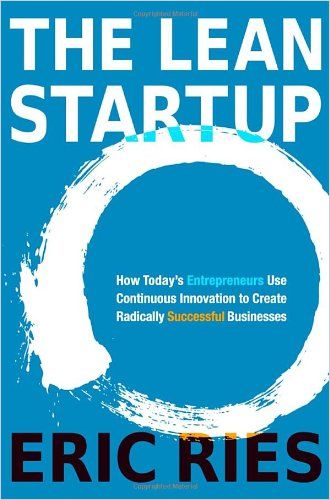Technology entrepreneur Eric Ries proves well ahead of his time in this valuable, honored 2011 guide to Lean start-up principles.

Prescient Start-Up Advice
Eric Ries argues in this prescient 2011 book that start-ups must adopt new management styles to achieve sustainable growth. His management methodology, experiments in product development and insistence on learning about customers offer rich applications for any industry.
Ries is a technology entrepreneur, consultant to start-ups and entrepreneur-in-residence at Harvard Business School who also writes the blog Startup Lessons Learned. His book garnered raves from tech industry professionals who praised him for recognizing and codifying forces and processes at the time that most experts were still figuring out. Renowned venture capitalist and Silicon Valley pioneer Marc Andreessen said, “Eric has created a science where previously there was only art. A must read for every serious entrepreneur – and every manager interested in innovation.” Jeffrey Immelt, CEO of General Electric, said, “I make all our managers read The Lean Startup.”
Definitions
Ries defines a start-up as a company or team developing new products that remain untested in the market. Traditional accounting that focuses on production efficiencies provides little value in this circumstance because, he points out, a start-up’s primary job must be learning about its customers.
Ries insists that early iterations of a new product should be as minimal as possible to avoid wasting time and money on features that might turn out to be unimportant to customers. A start-up, he says, should focus on a limited set of metrics to test its vision and then should adjust its products rapidly according to the only measurement that matters: market viability.
To their possible detriment, start-ups face an almost infinite array of potential product improvements. Ries says making correct, efficient choices defines the entrepreneur’s challenge. Simply focusing on a sustainable growth engine, he cautions, narrows the ideas that directly affect value and long-term growth.
Learning
Start-ups innovate by virtue of their lack of structure and hierarchy. In fact, Ries’s counterintuitive model values learning over productivity and experimentation over perfection. He maintains that start-ups operate under too much uncertainty to allow for advance planning.
The Lean Startup is not a collection of tactics. It is a principled approach to new product development.Eric Ries
Avoid perfecting your products too early, Ries advises, because you can’t gain meaningful knowledge about your customers until your product hits the market.
Minimum Effort, Maximum Learning
Ries understands that start-ups need revenue, but he suggests that the real value start-ups create doesn’t come from their products – it comes from what they learn about their customers. He outlines the “Build-Measure-Learn” feedback loop, which entails testing assumptions about the market against real customer reactions. Spending months developing a product in isolation creates waste, he warns, because you might be building something nobody will buy.
Start-ups need organizational structures that combat the extreme uncertainty that is a start-up’s chief enemy.Eric Ries
Ries urges entrepreneurs to introduce a minimum viable product that contains the fewest features needed to inform subsequent iterations. He asserts that worthwhile product features will prove their importance to customers through use and testing.
Value and Growth
Ries posits that entrepreneurial vision rests on the fundamental assumptions of the value hypothesis – that customers will find a product useful – and the growth hypothesis – that a product will attract more mainstream customers in the future, over time. Early adopters, Ries has found, are forgiving of minor flaws and willing to provide valuable feedback.
Just as theory informs scientific experimentation, a start-up’s vision informs its experimentation. The goal of every start-up experiment, Ries avows, is to discover how to build a sustainable business around that vision.
Investing in quality, design and larger projects did not require that we abandon our experimental roots.Eric Ries
Ries says start-up leaders will know whether their hypotheses about value and growth hold true after they develop several product iterations. They must decide whether to pivot from their original vision or persevere. He reminds you that most profitable start-ups have made at least one major pivot.
Philosophy
Ries presents a philosophy, not a set of practices, though he explains how to pivot if your initial assumptions prove unworkable. His guidance is, at times, disorganized, repetitive and insufficiently linear, but Ries provides enlightening anecdotes, including some that describe the transitions start-ups must make from niche to mainstream and from outlier to established.
His concise vision of innovation management places Ries’s model in the historical context of lean manufacturing and tech industry growth. He provides a firm foundation of examples while leaving it up to entrepreneurs to fit his concepts to their situations. Ries’s astute, flexible approach will benefit any entrepreneur or product developer, whether in a Silicon Valley garage or a Fortune 500 lab.
From among the infinity of books on Lean approaches and start-ups, these nicely illuminate Ries’s approach: Dan Olsen’s The Lean Product Playbook, Peter Thiel’s canonical Zero to One, and The Hard Thing About Hard Things by Ben Horowitz.









